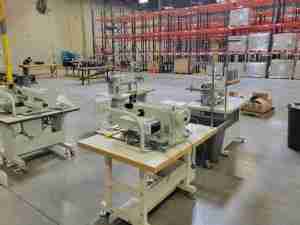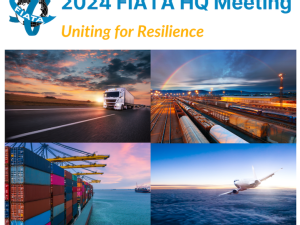Led by an upturn in Chinese imports and exports, the world's largest dedicated project forwarding company is keeping plenty busy despite a slight decline in the overall global project cargo market.
'There was no doubt that the size of the Chinese economy ' fueled by rapidly growing GDP, international trade and a government focus on upgrading infrastructure ' represented many opportunities for the Worldwide Project Consortium,' said Kevin Stephens, WWPC's Queensland, Australia-based general manager.
'In China, projects are getting bigger,' Stephens told The American Journal of Transportation. 'Projects into China are still primarily located on the Eastern Seaboard but are heading West.'
Project imports into China include those for the petrochemical industry and for light rail and other infrastructure, he said. Second-hand plants and a variety of heavy cargoes for medium-sized private investors account for a substantial portion of the activity.
'On the export side, the WWPC recognizes that the Chinese are quickly becoming leading players and suppliers of vessels, steel structures and power plants and equipment for engineering companies with contracts worldwide,' Stephens said. 'The Chinese engineering companies are also starting to have projects throughout the world and are sourcing in China for those projects.'
WWPC, with a franchise network encompassing 100 project specialist offices in 90 countries, is well-positioned to respond to shifts in the project marketplace, he said.
'Projects may come and go, regions may heat up and cool off, but from a global perspective, project cargo activity is at least holding its own,' Stephens said. 'That is the consensus amongst WWPC partners.
'Project forwarding covers reasonably specific patterns,' he continued. 'Major projects cover a range of industries and include engineering, production, exploration, oil and gas, construction, mining treatment plants, power generation, rail and other public transport sectors, as well as complete factory movements.
'There hasn't been a real change in patterns in recent times, but, with funding in decline, there has been a marginal reduction in the number of major projects worldwide,' Stephens said. 'Despite this, business among WWPC partners has been on the rise. Infrastructure development tends to rotate regionally.'
He added that opportunities also arise, however unfortunate, when redevelopment is required in the aftermath of natural disasters.
'In the industrialized world, there is no such thing as a downturn in project cargo,' Stephens said. 'WWPC members only handle specialized transport, which can include anything from boilers, heat exchangers and tunnel-boring equipment to transformers via chartered ships or aircraft.
'We see increasing numbers of world-class projects going to members of the WWPC,' he said. 'Our partners have received inquiries from substantial world-class projects in a whole range of industries.'
Stephens noted that it is not uncommon for the process of securing and completing a cargo project to extend over a period of years.
'When we win a project, we don't win it within one or two months,' Stephens said. 'We are often working on a project for one or two years through the initial inquiry and bid stages before the contract is actually awarded. The project itself, through to construction completion, can also take several years. In this business, it is important to be patient and follow everything through continuously to the mutual satisfaction of all parties.'
Stephens said the WWPC 'prides itself on never receiving a negative comment about its services around the world in ensuring the successful and cost-effective delivery of project cargo, and we are proud of the organization's professional reputation since its formation in September 1999.'
The WWPC's 'think local, work global' formula has ensured the phenomenal growth of the consortium from a core group of 30 to partnerships that now stretch throughout North and South









